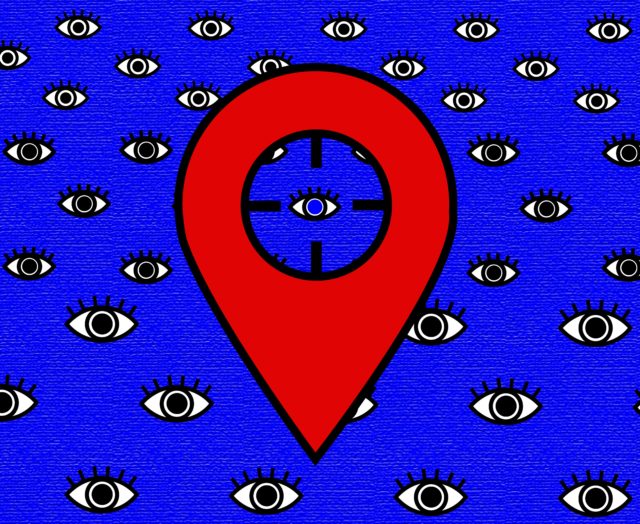In a world dominated by social media, we have all become used to the idea that nothing is sacred or forgotten. Nothing we have typed out online can fully be erased and, through our many devices, our whereabouts are rarely in question. With the rise of apps like Find My Friends, which comes standard on all iPhones, we need to realize the benefit of having a little privacy in our lives.
We hear friends ask each other all the time to share their locations with each other, almost as if it is some sacred step in the relationship. This question, however, is really strange when you think about it. Can you imagine asking someone to know where they are at all times? If we do ask this, it might seem unclear whether we want to be better friends with the person or we want to kidnap them. The practice of sharing your location with so many people would seem undeniably creepy in any other period of human existence.
That being said, it is OK to deny your friend or your significant other your location at all times. Without sharing your location, you allow natural trust to build, especially in a romantic relationship. As an adult, no one needs to know where you are at all times. If a significant other cannot trust you enough that he or she has to literally track where you are going, it could be the sign of a toxic relationship. Similarly, parents will track their kids’ phones as well, especially in high school or early in college — our early independent years. While parents have good intentions most of the time, kids who are being tracked by them 24/7 cannot possibly mature enough to live on their own. Being in college is for us to learn to live on our own and transition into adulthood. An integral part of that is not having someone look over your shoulder all the time. In fact, this time in our lives is designed for the exact opposite.
Of course, there are some outlier situations where sharing your location can be beneficial. If one of your friends is lost from the group or you can’t find them, obviously having their location is a big help. These are primarily safety concerns. Not only are these situations rare, but they also show the potential faults in location sharing. Locations can take a while to buffer and update, meaning that you could go to the location your friend’s phone says, but they could already be a mile down the road. Location sharing is only sparingly accurate and, if you’re on the move, it is always lagging behind, rendering it almost completely ineffective.
Location sharing can also limit our communication skills and patience, two practices that are already reduced by our excessive social media use. For example, a common reason for location sharing among friends is to see whether their roommates are home, instead of simply knocking on their door or calling them. When waiting for a friend to arrive, people will check their locations even though a phone call would be just as fast with the added touch of actual human conversation. Another solution for the tardy friend is to just, you know, wait a few minutes.
Even in today’s age where we have everything we need right at our fingertips, there are moments when it’s necessary to take a step back. No matter how much you love someone or someone loves you, sharing your locations with them at any given time is not only unnecessary but also, quite frankly, excessive and creepy.



